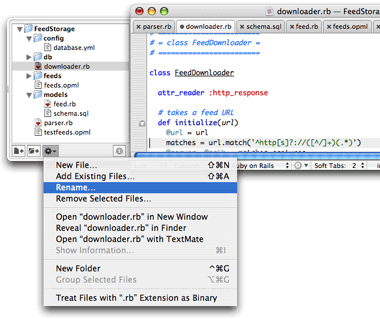There is an interesting post on Slashdot pointing to an article by Ben Meyer, about the concept of a Type Manager as opposed to the oldschool concept of a file manager. Quote from the Slashdot introduction:
In the past few years many of us have been introduced to a new type of application, the Type Manager. Most of us are familiar with iTunes, but there are many other Type Managers out there that are gaining market share and a rabid fan base of users such as digiKam and amaroK.
...
After creating a list of all the traits of a Type Manager I was able to define exactly what a file manager should be and discovered that there are in fact many partial Type Managers out there now that implemented only half of what makes up a full Type Manager.
I only skimmed over the actual article (will read it later though), but the concept seems intuitively logical and intriguing. It is true that we moved away from having a single database of files, and from having the file manager as our means to manage these files. An average system today has several of these content-type-specific databases, spreading over datasets as diverse as email, audio, photographs, sourcecode, and others.
 |
TextMate has some Type Manager properties as well -- |
We often don't really access individual files via file managers any more when we want to work with them, but via targeted interfaces. I use my development environment as much as an entity browser for my projects as I use iPhoto to handle images. Often it isn't even possible to load individual files any more except from within a Type Manager; in the case of email files are stored in proprietary databases, and in the case of iTunes (and similar audio/media environments) it's much more work to find individual files via a file manager than via a dedicated application.
I also found it interesting that most of the Slashdot readers commenting the story instantly refuted the notion of Type Managers. I usually love to read Slashdot comments to verify factual contents of a story, and it's often more interesting to read the comments that to actually RTFA -- but in this case they clearly got it wrong.
I think it's an intriguing thought, and the reasons for and consequences of this emerging type of applications might not be clear at once (they're certainly not yet clear to me), so it's a great idea to play around with. And it's no surprise that (as usual) Apple 'got' it first.
Ben, don't let the flames discourage you. I think you're onto something big.
Comments
Comments are closed. You can contact me instead.